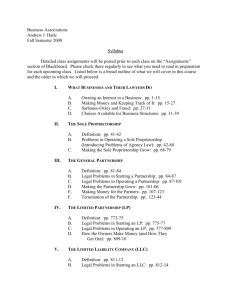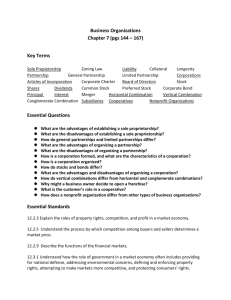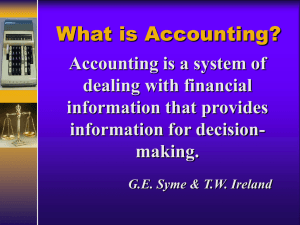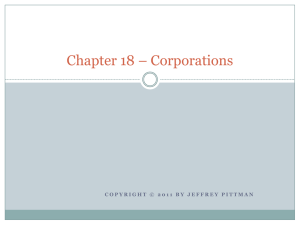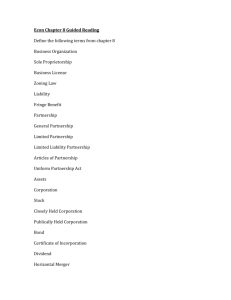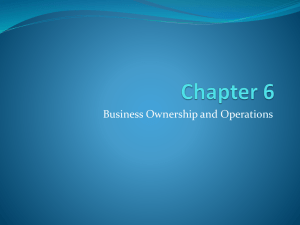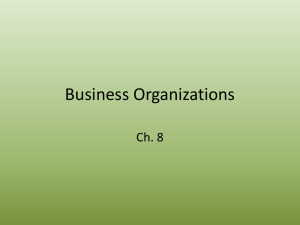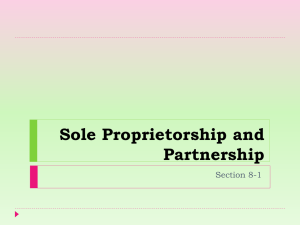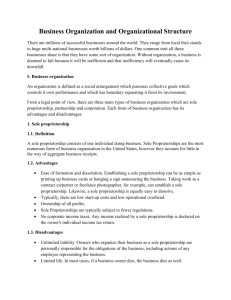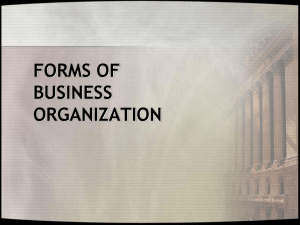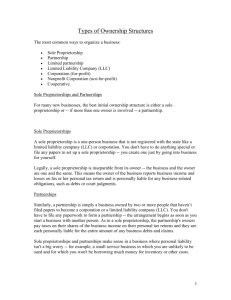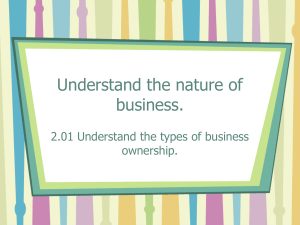What You Need to Know Presentation
advertisement
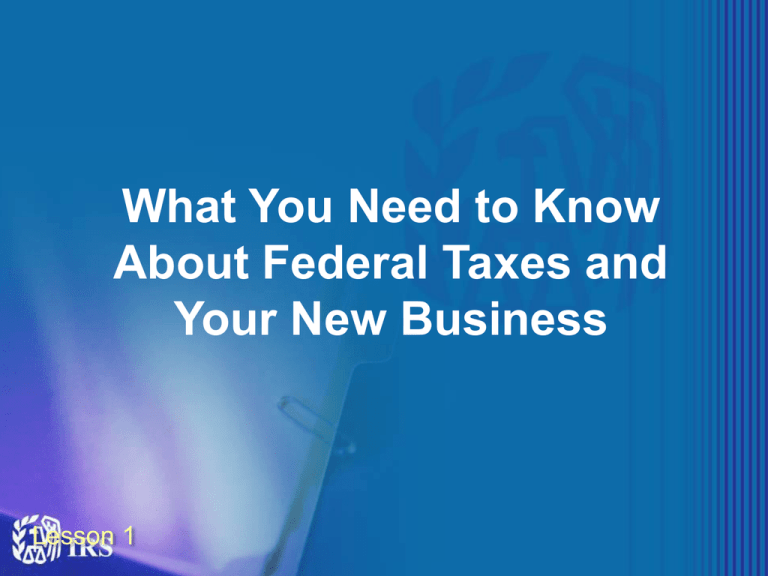
What You Need to Know About Federal Taxes and Your New Business Lesson 1 Federal Employer Identification Number (EIN) • Pay wages to employees • Have a self-employed retirement plan • Operate your business as a corporation or partnership • Are required to file any of these tax returns: • • • • Employment Excise Fiduciary Alcohol, Tobacco, or Firearms Recordkeeping • You must keep: • • • • • • Receipts Sales slips Invoices Bank deposit slips Cancelled checks Other documents to substantiate • Income • Deductions • Credits Recordkeeping • Prevent omission of deductible expenses • Establish earnings for self-employment tax purposes • Explain items on your income tax return Recordkeeping • Publication 583 Starting a Business and Keeping Records Recordkeeping How long should records be kept? • 3 years after the return is due or filed, or • 2 years from the date the tax is paid, whichever is later Recordkeeping Keep employment tax records • Four years after the date on which the tax return becomes due, or the tax is paid, whichever is later. Recordkeeping Publication 15 Employer’s Tax Guide Forms of Business Organization • • • • • Sole Proprietorship Partnership Limited Liability Company S Corporation Corporation Forms of Business Organization Sole proprietorship • A sole proprietorship is an unincorporated business that one person owns. Advantages • The simplest type of business organization Disadvantages • Capital is limited to whatever the owner generates. Forms of Business Organization Partnership • A partnership is a relationship between two or more persons who join together to carry on a trade or business. Advantages • Easy to organize • Can have greater financial strength than a sole proprietorship • Combines managerial skills and judgment of the partners • Each partner has a person interest in the business Forms of Business Organization Partnership • A partnership is a relationship between two or more persons who join together to carry on a trade or business. Disadvantages • The liability of the partners is usually unlimited • Decision authority is divided Forms of Business Organization Limited Liability Company • An LLC may be treated as a sole proprietorship, a partnership, or a corporation. Advantages • Owners have limited personal liability for the debts and actions of the LLC • Management flexibility and the benefit of flowthrough taxation Forms of Business Organization Limited Liability Company • If you have a business of two or more people, you’re automatically classified as a partnership for federal tax purposes. • If you are a one person business, you’re automatically classified as a sole proprietor for federal tax purposes. Forms of Business Organization S Corporation • An S Corporation is a small business corporation whose shareholders elect to have corporate income taxed like a partnership. Forms of Business Organization Corporation • The law treats a corporation as a legal entity. Advantages • • • • • The life of the business is perpetual The stockholders have limited liability Transfer of ownership is easy Easier to raise capital and to expand Adaptable to both large and small businesses Forms of Business Organization Corporation Disadvantages • It is taxed twice • It may be more difficult and expensive to organize Forms of Business Organization • • • • • Sole proprietorship Partnership Limited Liability Company S Corporation Corporation Choosing a Paid Preparer • Avoid preparers who claim they can obtain larger refunds than other preparers • Avoid preparers who base their fee on the amount of your refund. Choosing a Paid Preparer • Ask questions and get references • Find out the person’s credentials • Find out if the preparer is affiliated with a professional organization • Never sign a blank return • Never sign a completed form without reviewing it and making sure you understand the entries • Consider whether the preparer will be around Tax evasion is punishable by up to five years imprisonment and a $250,000 fine. Lessons for All Small Business Owners • What you need to know about federal taxes and your new business • How to set up and run your business so paying taxes isn’t a hassle • How to file and pay your taxes using a computer Lessons for Some Small Business Owners • What you need to know when you run your business out of your home • How to set up a retirement plan for yourself and your employees Lessons for Employers • What you need to know about federal taxes when hiring employees or contractors • How to manage your payroll so you withhold the right amount from your employees Lessons for Employers • How to make tax deposits and file your payroll taxes using a computer • What you need to know about Federal Unemployment Taxes (FUTA) www.irs.gov Small Business/Self Employed Tax Center IRS.gov screen shot Questions? Thank You!
